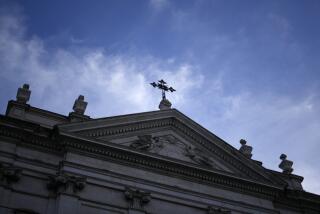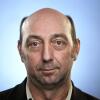Pastors from Columbine funerals reflect on faith and 20 years of mass shootings
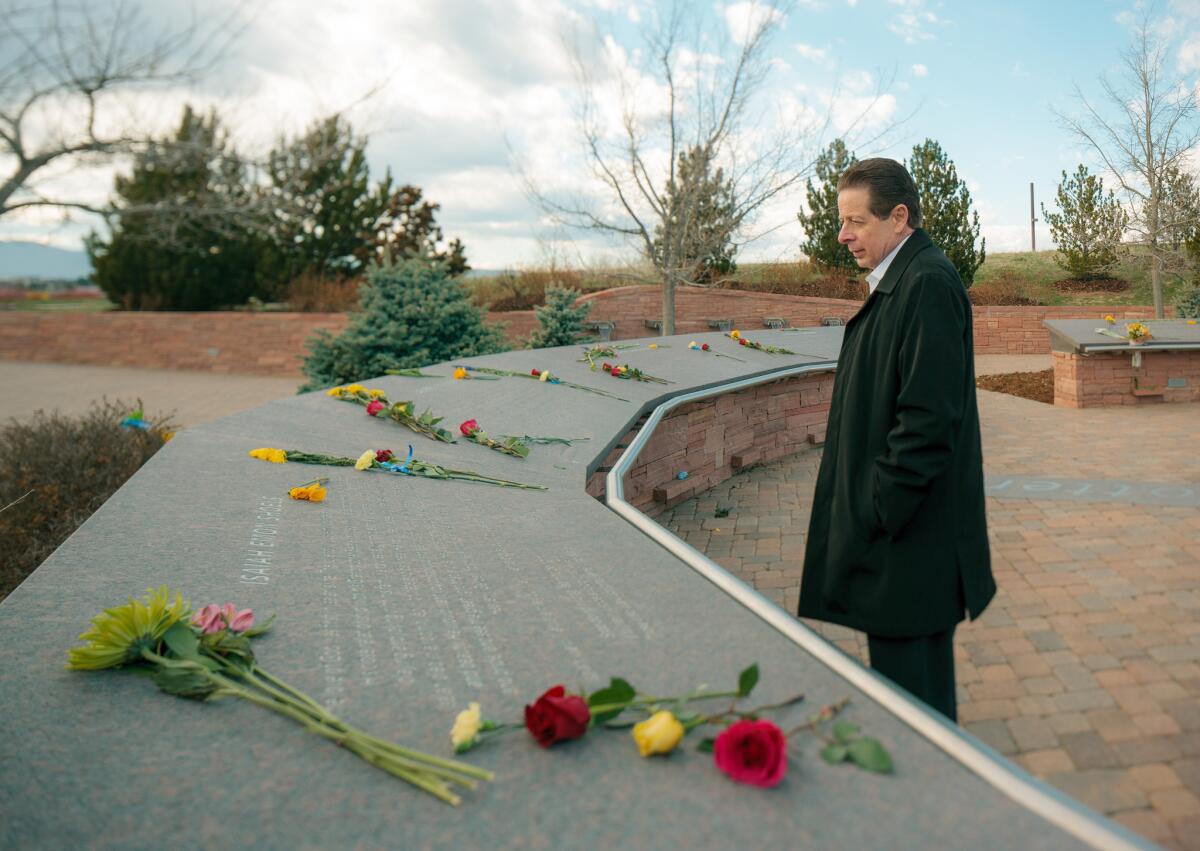
They were the men of faith faced with a seemingly impossible task — providing comfort, hope, maybe understanding — after 12 students and a teacher were shot to death at Columbine High School.
Bill Oudemolen presided over the funeral for 16-year-old John Tomlin days after the mass shooting. The pastor told the large crowd at Foothills Bible Church that he just didn’t want to accept what had happened.
“He was killed simply because he went to school Tuesday morning,” Oudemolen told the crowd in Littleton, Colo. “Schools are supposed to be safe zones, not killing fields.”
When the two students came onto the Columbine High School campus and killed schoolmates and a coach while injuring more than 20, it seemed impossible for Oudemolen to imagine it ever happening again.
But now, standing at a memorial for those killed in Littleton, Colo., Oudemolen shakes his head as the locations of mass shootings in the 20 years since Columbine are named off: Sandy Hook, Orlando, Parkland, Tree of Life Synagogue, Las Vegas....
More than a dozen pastors presided over or aided with funerals and memorials for those slain at Columbine on April 20, 1999. Some have retired. One left his position to start a wealth management company. Another is an architect. A couple left the state. Others are pastors still. Like many who lived through it, they feel the tragedy regularly enough.
Columbine — the word now shorthand for the school massacre — has at times seemed so long ago for Oudemolen. Then another shooting happens and it roars into the present.
This week, when an 18-year-old high school student who was obsessed with Columbine arrived in Colorado and several school districts closed — affecting about 500,000 students, Oudemolen said he was rattled.
Within moments, his mind raced back 20 years to when he was standing on a corner seeing kids streaming out of the school and watching police cars screaming down West Bowles Avenue.
A lot has changed for him since the massacre. He’s no longer preaching; he was replaced two years ago at the church he founded and worked at for more than three decades.
The 69-year-old is selling his house in Littleton, and he and his wife, Jan, plan to move to Michigan, where he grew up.
“There is a feeling of having a loss of identity,” Oudemolen said.
Even though there were many pastors called upon for funerals of the slain, when they stood to deliver sermons — trying to shepherd families through grief, a community through mourning and a nation through shock — they stood alone.
Bruce Porter remembers crying in a dark room before the funeral of Rachel Scott. The pastor said he felt overwhelmed by the expectations, the media glare and wanting to help Rachel’s family in some small fashion.
“I was praying fervently that God would give me words,” Porter said. “I felt in way over my head. Way, way out of my depth.”
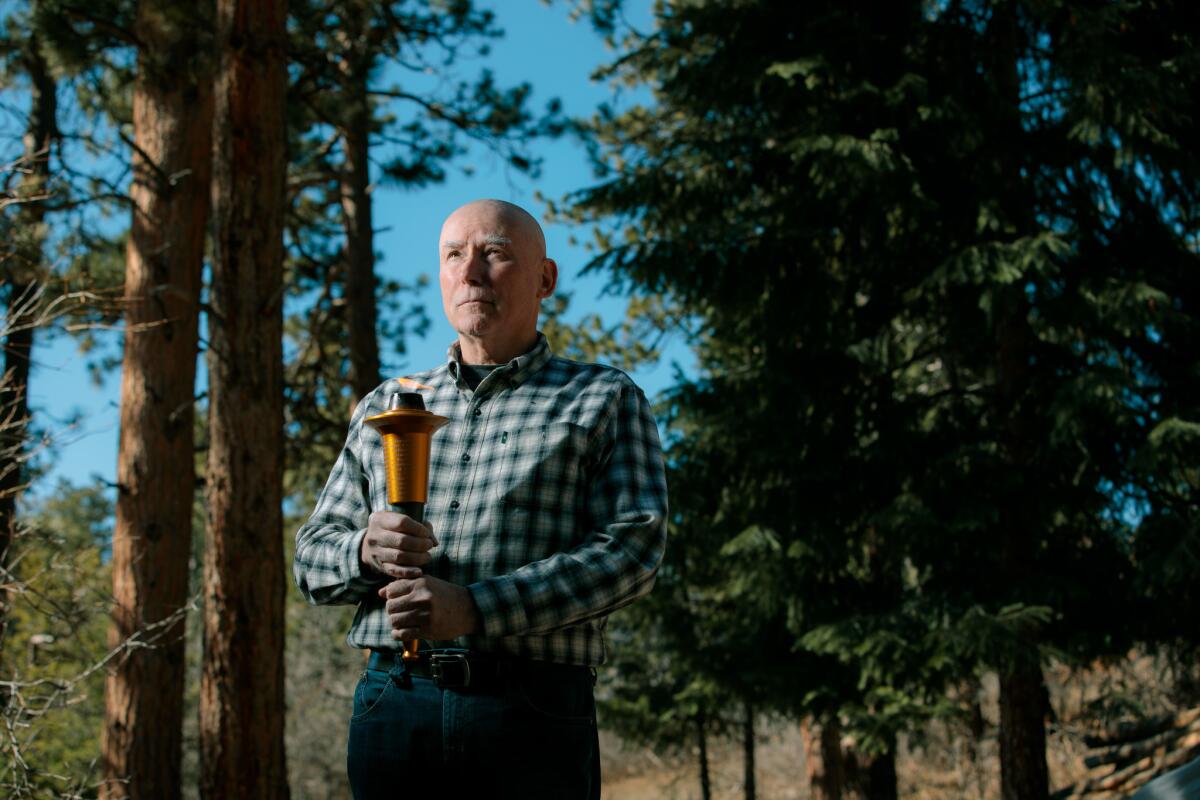
When Porter stood before the crowd of 2,000 at Trinity Christian Center during Rachel’s funeral, the words came out as indictments:
“Politicians and legislators have failed you. The police who couldn’t keep you safe have failed you. And we, your parents, have failed you,” Porter said. “If you’re going to take back your school, this city, state and country, it’s up to you. Because we have failed.”
He said he thought about those words when he saw the students at Marjory Stoneman Douglas High School react to the mass shooting that claimed 17 lives at their Parkland, Fla., school. Porter said he was chagrined, however, that some of the students had aimed to find political rather than spiritual solutions to the violence.
The shooting at Columbine has always been present in his life. He said that after the Sept. 11, 2001, terrorist attacks, he went to New York to help with recovery work as a volunteer firefighter. If Columbine hadn’t happened, he said, he’s not sure if he would’ve gone to do that.
“Rachel’s exhortation to make a difference in the world impacted me and pushed me,” he said. “Before, I would’ve asked, ‘Who am I and what can I contribute? I’m just one person.’”
Porter also began traveling the country, giving talks at schools about the shooting and Rachel’s story. The 17-year-old had been a prolific writer, and her diary entries were eventually published in a book called “Rachel’s Tears.” Her essay written shortly before she was killed, titled “My Ethics, My Codes of Life,” is something that still inspires Porter.
He said that when he delivered her eulogy, he compared Rachel to a torch for compassion, kindness and her faith. He can still remember when he asked mourners who would pick up the fallen torch. People stood up, answering that they would.
Not long after Columbine, Porter acquired a heavy, golden torch that can be lighted. He said he takes it with him to speaking engagements. “Thousands of hands have held this torch,” he said.
He no longer preaches in Littleton, however. Porter said he stays in touch with Rachel’s parents, but they don’t attend his church in Morrison, a small town in the foothills about half an hour from Littleton. He started it a few years after Columbine, and it has about 30 members.
He called it Torch Life Church.
Several of the churches that hosted funerals for those slain at Columbine have moved or closed. Littleton, a conservative suburb of Denver, has a strong evangelical Christian population. All around Columbine High School, the area is dotted with churches.
But Wayne LaGrone’s no longer exists.
LaGrone had come to Littleton from Midland, Texas, in 1980 with hopes of opening a church and seeing it grow. But he began to doubt whether he was “called” to be a pastor.
Adam Lanza’s files show him as another shooter caught up in Columbine »
He said he lived near the family of Kyle Velasquez, who as a child struggled with learning disabilities and had only been a student at Columbine for a few months at the time of the shooting. When LaGrone was asked to speak at Kyle’s funeral at St. James Presbyterian Church, he felt crushed over the death “of such a gentle soul.”
At the funeral, he told the crowd that he believed the shooters were acting under demonic influences.
The funerals, he said, had a big effect on the clergy called upon to officiate. In the weeks after the shooting, he said, several pastors would gather and talk about their feelings, but over the years, the group dwindled from more than 30 to just a few.
LaGrone said they still meet today — he still attends — but it’s more of a fellowship and prayer than talking about the events of the shooting. And LaGrone, 70, is “trying to retire” after working for two decades as an architect.
Not Dwight Blackstock, however.
His beard is grayer now and his back fails him, but even though the 70-year-old has difficultly standing through a sermon, he still serves, now as interim pastor at Aurora First Presbyterian Church.
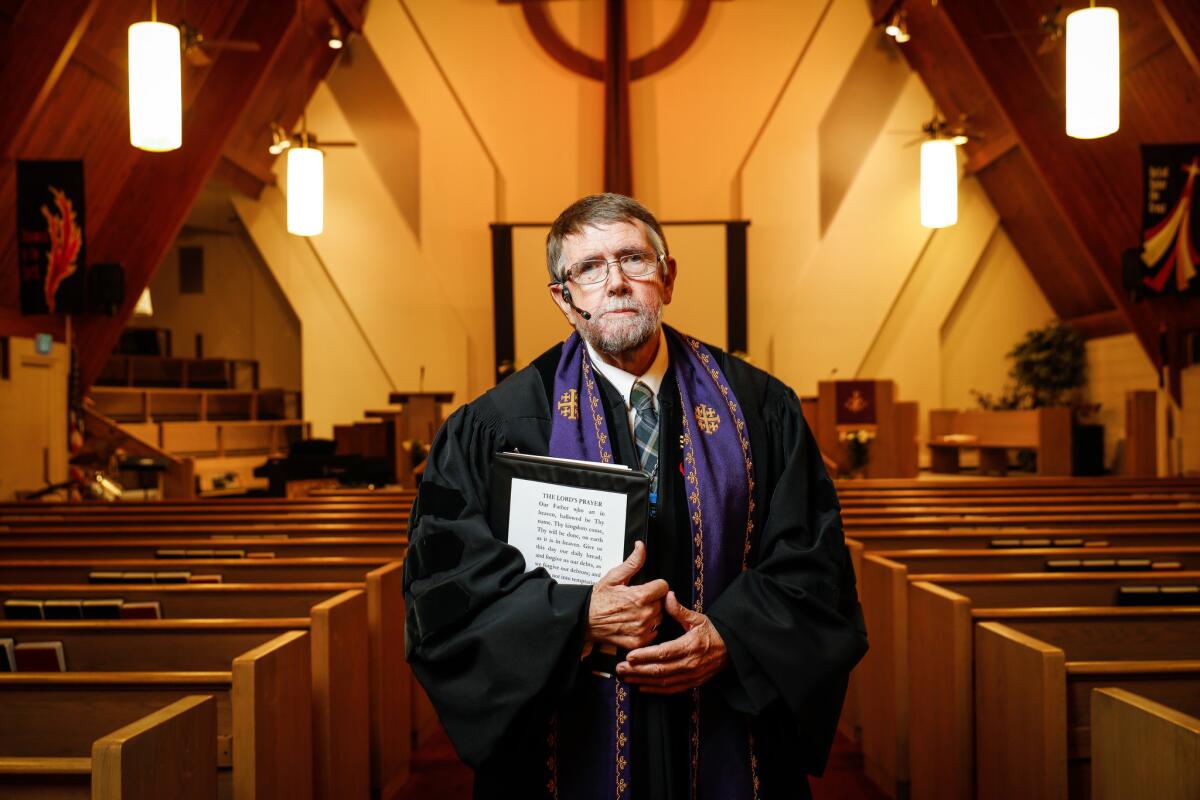
He still feels the same pull to preach and reach out to people as he did when he stood at Grace Presbyterian Church to deliver the sermon at the funeral of Daniel Rohrbough, 15.
Many of the students who’d lived through the Columbine shooting struggled with survivor’s guilt, he said. In the sermon, he told them: “Don’t feel guilty. Thank God. Just thank God. And thank Danny.”
The message still resonates today, he said, after he has watched violence be unleashed at schools, theaters, churches, concerts and clubs. He thinks about those left standing after the fact, and he grieves for the families who have lost loved ones.
Blackstock said that after the 1999 massacre, he thought Columbine would be the last event of its kind.
“I proved to be naive in that thinking,” he said.
He had retired as pastor a few years after Columbine because of back problems, but he still wants to preach. His new congregation in Aurora is much smaller than the one in Littleton — by maybe two-thirds. But he said he would give a sermon “in front of six, sixty or a thousand.”
A year after the Parkland massacre, two fathers are divided on guns but united by pain »
On Thursday night, there were about 50 listening to him talk about Jesus washing the feet of the disciples before his crucifixion.
Blackstock, sitting on a stool and gesturing with his hands, talked as congregants listened quietly. He told them to look for and believe in miracles.
He instructed them that after they received the bread and wine, they should leave in silence.
“It doesn’t really have an end,” he said.
They filed out, slowly, until the small church was empty. And he stood at the altar for a moment.
Alone.
More to Read
Start your day right
Sign up for Essential California for news, features and recommendations from the L.A. Times and beyond in your inbox six days a week.
You may occasionally receive promotional content from the Los Angeles Times.


